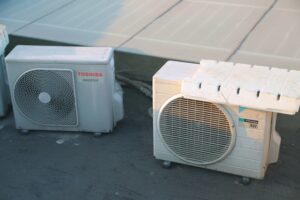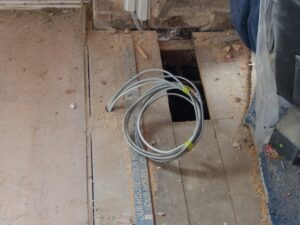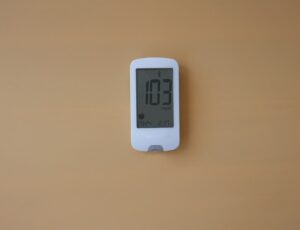Tankless water heaters are known for their energy efficiency and on-demand hot water supply, but how long can you expect them to last? We understand the importance of having a reliable and long-lasting hot water heater for both residential and commercial properties. That’s why we’re here to provide you with some information on the lifespan of tankless water heaters.
Tankless water heaters have an average lifespan of 10-20 years with proper maintenance. This is twice as long as a traditional water heater with a storage tank typically lasts. However, the longevity of a tankless system depends on the type of fuel used to power it: electric or gas. Gas-powered tankless water heaters tend to last longer than electric-powered units, with a lifespan of up to 20 years or more. We offer both electric and gas-powered tankless water heaters and can help you determine which one is the best fit for your needs and budget.
Understanding Tankless Water Heater Lifespan
Tankless water heaters have been growing in popularity as an energy-efficient and space-saving option for both residential and commercial properties. One of the most significant advantages of tankless water heaters is their longer lifespan compared to traditional tank water heaters. In this section, we will explore the factors that affect the lifespan of a tankless water heater and compare it to traditional tank water heaters.
Factors Affecting Lifespan
The lifespan of a tankless water heater can vary depending on several factors. The quality of the unit, the frequency of maintenance, and the hardness of the water are some of the factors that can affect the lifespan of a tankless water heater. According to Water Heaters Now, with proper maintenance, tankless units can last up to 20 years or more.
Comparing Lifespan to Tank Water Heaters
Traditional tank water heaters have a shorter lifespan than tankless water heaters. According to Angi, tankless water heaters can last up to 20 years, while traditional tank water heaters last for about 8 to 12 years. This means that tankless water heaters can last twice as long as traditional tank water heaters.
Maintenance and Longevity
Tankless hot water heaters are generally more durable and long-lasting than traditional hot water heaters. However, proper maintenance is still crucial to ensure their longevity and efficiency.
Importance of Regular Maintenance
Regular maintenance is essential to keep your tankless hot water heater running smoothly for years to come. Neglecting maintenance can lead to a buildup of mineral deposits, which can cause the heater to work harder and less efficiently. This can result in higher energy bills and a shorter lifespan for your unit.
One important aspect of regular maintenance is descaling. Descaling involves removing mineral buildup from the heat exchanger, which can help prevent corrosion and improve the efficiency of your unit. It is recommended to have a professional plumber perform this task every year or two, depending on the hardness of your water.
Other regular maintenance tasks include checking for leaks, replacing filters, and inspecting the venting system. It is also important to ensure that the unit is properly ventilated and that there is no debris or flammable materials near the unit.
Professional Maintenance vs. DIY
While some maintenance tasks can be performed by homeowners, it is generally recommended to have a professional plumber perform regular maintenance on your tankless hot water heater. A professional plumber has the knowledge and expertise to identify and fix potential issues before they become major problems. They also have the proper tools and equipment to perform tasks such as descaling safely and efficiently.
Common Issues and Solutions
Tankless hot water heaters are a great investment for both residential and commercial properties, but like any other appliance, they are not immune to issues. In this section, we will discuss some common issues that you may encounter with your tankless hot water heater and provide practical solutions.
Dealing with Hard Water
Hard water is a common problem that can lead to mineral deposits and scale buildup in your tankless hot water heater, reducing its efficiency and lifespan. To prevent this, you can install a water softener, which will remove the minerals from the water before it enters your hot water heater. This will not only increase the lifespan of your tankless hot water heater but also improve its efficiency.
Preventing Corrosion and Sediment Buildup
Corrosion and sediment buildup are other common issues that can lead to reduced efficiency and lifespan of your tankless hot water heater. To prevent these issues, it is important to flush your hot water heater regularly, as recommended by the manufacturer. This will remove any sediment buildup and prevent corrosion.
Performance and Efficiency Factors
Energy Efficiency and Consumption
One of the main advantages of tankless hot water heaters is their energy efficiency. Unlike traditional water heaters that constantly heat and store water, tankless models only heat the water when it is needed. This means that they use less energy and can save you money on your utility bills. According to a study by the U.S. Department of Energy, tankless water heaters can be up to 34% more energy efficient than traditional water heaters.
However, the energy efficiency of a tankless water heater can be affected by several factors. These include the temperature of the incoming water, the desired output temperature, and the flow rate of the water. Additionally, gas-powered tankless water heaters may be more energy efficient than electric models, but they can also consume more energy during the ignition process.
Consistency of Water Temperature
Another important factor to consider when evaluating the performance of a tankless hot water heater is the consistency of the water temperature. Unlike traditional water heaters that store a large amount of hot water, tankless models only heat water as it is needed. This can lead to inconsistent water temperature if the demand for hot water exceeds the capacity of the unit.
To ensure consistent water temperature, it is important to choose a tankless hot water heater that is appropriately sized for your needs. Additionally, some models may include features such as recirculation pumps or buffer tanks that can help to maintain consistent water temperature.
Installation and Location Considerations
When installing a tankless hot water heater, proper installation practices are crucial to ensure optimal performance and longevity. Improper installation can lead to issues such as leaks, inadequate ventilation, and even safety hazards. It’s always a good idea to hire a professional plumber for installation to ensure that all necessary steps are taken to ensure a safe and efficient installation.
Proper Installation Practices
Proper installation practices include ensuring that the unit is correctly sized for the household’s hot water demands and that the unit is installed in an appropriate location. The unit should be installed on a sturdy wall, and the gas supply line or electrical wiring should be installed correctly. The installation of the unit should also comply with local building codes and regulations.
The Impact of Location on Lifespan
The location of the tankless hot water heater can have a significant impact on its lifespan. For instance, if the unit is installed in an area with high humidity levels, it may be more susceptible to corrosion, which can lead to a shorter lifespan. Additionally, if the unit is installed in an area with inadequate ventilation, it can lead to overheating and damage to the unit. Therefore, you should install the unit in a well-ventilated area and avoid installing it in areas with high humidity levels.
Get in touch to discuss what’s right for you!




